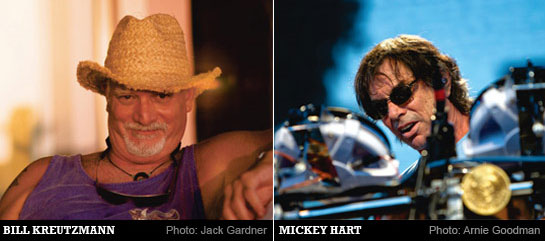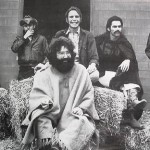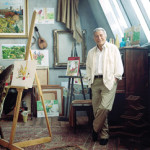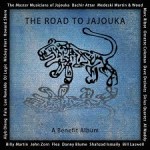
BILL KREUTZMANN
BILL KREUTZMANN KEPT THE GRATEFUL DEAD’S groove going for 30 years, despite being told by his sixth grade band teacher he couldn’t keep a beat.
The Grateful Dead jammed their way into the consciousness of a nation like few bands before or since. Kreutzmann, who was with the band from beginning to end, paired with fellow drummer Mickey Hart to form what is believed to be the first rock band with two drummers, and defined psychedelic drumming.
Born May 7, 1946, in Palo Alto, CA, Kreutzmann grew up listening to his parents’ R&B records. After getting booted from that band class, the young Kreutzmann rode his bike into town looking for a drum teacher and found Lee Anderson, one of Ken Kesey’s Perry Lane gang at the time Kesey was writing One Flew Over the Cuckoo’s Nest nearby.
Kreutzmann had played in some local acts, including one whose members played in black pants, red blazers and black pin ties. In 1964 he met Jerry Garcia when his father sold an old banjo at Dana Morgan’s music store and Garcia, who was working there, started to play it. Kreutzmann said he immediately wanted to follow him all around the country, making him, possibly, the first Deadhead.
Kreutzmann, Garcia, Bob Weir, Phil Lesh and Ron “Pigpen” McKernan played their first official show as the Warlocks, on May 5, 1965, two days before Kreutzmann’s 19th birthday. Kreutzmann remained with the band until their official dissolution in 1995, making him one of four members to play every one of the Dead’s 3,500 shows.
Following Garcia’s passing, Kreutzmann took a small break from music, then reappeared with Backbone to release one album. He has subsequently played with the Other Ones (later renamed the Dead), SerialPod and the Rhythm Devils with Mickey Hart. He was inducted into the Rock and Roll Hall of Fame in 1994 as a member of the Grateful Dead, which received a Grammy Lifetime Achievement Award in 2007.
Following a dream he and Garcia hoped to realize together, Kreutzmann lives in Hawaii where he plays with local groups, has filmed a documentary, Ocean Spirit, and grows and sells his favorite flowers and fruits. He formed a new band, 7 Walkers, with guitarist Papa Mali, multi-instrumentalist Matt Hubbard and bassist George Porter Jr. 7 Walkers plays new songs by lyricist Robert Hunter, Grateful Dead classics and New Orleans standards.
MICKEY HART
DRUMMING IS IN MICKEY HART’S GENES. HART WAS born September 11, 1943, in Brooklyn, NY, to two champion rudimental (marching band) drummers, although he got to know his father well only after beginning his own drumming career. Hart took up drumming early, and in grade school had a rare opportunity to bang on Nigerian Babatunde Olatunji’s drums, sparking a passion for percussion and world music. Olatunji later taught Hart and performed often with the Grateful Dead.
Hart certainly belongs to a select few who, at 17, joined the Air Force because “that was where the greatest drummers were.” He moved to the West Coast to start a drum store with his father before joining the Grateful Dead in 1967, where he and fellow drummer Bill Kreutzmann earned the nickname, “the rhythm devils” as the two embarked on the band’s trademark extended jams and drum solos. A short hiatus from the band, from 1970 to 1974, resulted in the solo album Rolling Thunder, but after that, he remained a member of the band until Jerry Garcia’s passing in 1995.
Hart’s passion for ethnomusicology led to him becoming involved with the American Folklife Center at the Library of Congress and the Center for Folklife and Cultural Heritage at the Smithsonian. He is also on the board of the Institute of Music and Neurologic Function, which studies the healing and therapeutic power of music. He has written several books on world music and percussion, and in 1991, his album, Planet Drum, won the first-ever Grammy for Best World Music Album.
Since leaving the Grateful Dead, Hart has been involved in several music projects, including Mickey Hart’s Mystery Box, the Hydra Project, the Other Ones, the Mickey Hart Band and, along with Kreutzmann, the Rhythm Devils.
Hart developed an interest in astrophysical data and began his Rhythms of the Universe project, capturing the light and electromagnetic waves of the universe and, with Nobel Prize-winning physicist George Smoot, converting them into music. “I knew sooner or later I would have to hear and play with the sound of the ‘big bang,’ beat one, the beginning of time and space…this is where we came from,” Hart said.
![]()
What are you listening to right now?
Bill Kreutzmann: A person I worked with back in 2000, Alphonso Johnson, from an album called Jazz Is Dead. It’s all Grateful Dead songs, as instrumentals. They’re wonderful.
Mickey Hart: Right now in my CD player are epic events from the cosmos, specifically the big bang, black holes and stars and planets and different galaxies. I’m working on translating light waves into sound waves that we can hear. I’m not doing much sub-lunar work. I am sonifying the universe. R.A.M.U., Random Access Musical Universe, is my sound droid, my instrument. It’s quite, uh, complex.
What was the first record you ever bought?
BK: A Ray Charles record. It had “(Night Time Is) The Right Time” and “Tell the Truth” on it, recorded live in Newport in 1958. I listened to that as a kid, learning the drum parts like crazy. I grew up in a white community but surrounded by beautiful soul, funk records.
MH: I remember the first records I ever heard. My mom inherited a Count Basie or Duke Ellington collection, and inside were 78s of indigenous music−pygmy music.
Where do you buy your music?
BK: My girlfriend turns me on to music. She introduced me to Papa Mali, for instance. That guy is for real. You can’t fake music.
MH: I do mostly the Web stuff right now. I’m connected to different institutions, like the Library of Congress and I’m on the board of the Smithsonian, and I go to YouTube sometimes. My 17-year-old daughter is a great resource; she just jams me on everything that’s moving in the young world of music.
What was the first instrument you played?
BK: It was always drums. I used to listen to Fats Domino and lie on the couch and rock my head back and forth. When my parents were out of the house I’d turn the music up as loud as it would go. I wanted to play piano because Fats played piano. Then I liked trumpet, but none of those instruments stuck. When I was a kid they didn’t know about attention deficit, and I think I was one of those children because I would tap on the table all the time and do this wild stuff, and my mother was all, “Oh Billy, don’t play on the table!“
MH: My father was a drummer. I never knew him when I was a kid, but he left behind a pair of sticks and a practice pad that made a real beautiful sound. It didn’t have a vibrating membrane so it wasn’t really a drum, but that pad occupied most of my consciousness from about three to about seven or eight before I got a real drum. I would put it in corners, in a bathroom, or wherever in the house would make the sound louder.
I would stand out in the rain and let the rain beat on my head and my body. I considered my own body an instrument, being hammered by the rain. I loved to be around noise. I loved to listen to the trolley cars, jackhammers and people at construction and a building being torn down.
What brought you to the instrument you now play?
BK: One day in Palo Alto I saw this guy playing drums in a live outdoor show, it might have been a country-western band, there was no such thing as hard rock yet, and I went “God, that looks great! You get to beat on things.” I got my first pair of drumsticks in the sixth grade and I still, to this day, remember how much I loved those drumsticks. It was like “The Sign of Bill” was drumsticks. When I was a kid, I’d sit down and try to learn a drum part and have some success or whatever and I’d say, “I’m getting it!” As soon as I stopped thinking and just was doing it, it would come to me, and I’d memorize the feeling—not how to do it, but how it felt to my body. It was something I just learned to do; nobody ever taught me that. It’s a muscle memory thing.
MH: My body was a rhythm machine in the making. My rhythms were exploding and the wonderful thing was that, in my home, I wasn’t shut down; I wasn’t told to stop fidgeting or stop tapping on that table. Sometimes it was out of place, like if we had company, but mostly my mother allowed me to nurture my sense of rhythm during my life cycle. It was a good home to grow up in, very understanding.
Everybody alive is a rhythm machine. Drummers spend thousands and thousands of hours practicing coordinated independence, but it’s a skill just like learning how to be an accountant or ride a bicycle. Body movement has to do with neurologic function within the brain, so once you give the muscles the memory you can do it easily, like moving one foot in front of the other. Look how long it took you to walk. It took a year to stand on your feet and walk without tripping; that’s a skill. Drumming seems magical because music is invisible, operating in a virtual domain that you create. Music is out of the normal waking consciousness: you move into altered states. That’s why it’s powerful, that’s why every culture in the world has music, because it is part of the evolution of our species and the development of our brain and our sensibilities. It’s not about the instruments, it’s about the vibrations that the instrument makes and how it works upon human consciousness. That whole riff is what it’s all about in drumming. It’s about transformation and it’s about vibrations. That’s the bottom-line of the universe. But that’s a whole other book.
Who would you like to write with that you haven’t?
BK: Singer/songwriter Rob Brezsny, who writes very far out books kind of like Tom Robbins, and Paul Krassner.
MH: Brian Eno, he’s skilled in spatial processing, and he understands the weird. He’s a chameleon; he can go wherever it’s good. Some hip hop folks like Wyclef Jean and Dr. Dre.
What musician influenced you most?
BK: Elvin Jones, one of John Coltrane’s drummers. I couldn’t steal a lick from that man, and I wouldn’t want to, but what he taught me is freedom, total freedom of expression, that it’s legal to do anything you can think of.
MH: Overall, it would have to be Alla Rakha, the greatest percussionist who ever lived, Ravi Shankar’s drummer. He brought Indian classical music to me, and that was a game-changer. He became my teacher. That was really the seminal moment in the rhythmic history of the Grateful Dead. Otherwise, Olatunji? Tito Puente? Gene Krupa?
What was the song or event that made you realize you wanted to be in music?
BK: I never said it that way. I had so much fun playing music in middle school, then the Beatles and the Rolling Stones happened and the Grateful Dead was just this nugget of a band, and we said, “We could do good at this and play pizza halls.” We did it for art and for the fun of it.
The first time we made over $500 at a gig, in the late ’60s playing for Bill Graham at the Fillmore West, we were overwhelmed. We all went, “God, man we each made 100 bucks tonight! How cool!” so we got the idea that we could make money, but I know I speak for Jerry and myself: we never thought about the money. I had some day jobs in the mid-’60s and late-’60s so I could be in the Grateful Dead, but I think if you put out really good art and people like your music then the money thing will take care of itself, and that’s as close as I can get to that.
MH: I was on a beach in Atlantic Beach, New York. I was really young, maybe 10, 11, and all the big guys were there with their girlfriends at a campfire. I had a little set of bongos, real tourist bongos. I start playing them and lo and behold this young girl came up with her friend and started dancing around the fire where I was playing and I go, “Okay, this will do.” It attracted the girls. I loved the sound before that, but after seeing the potential of the mating ritual, especially if you were a puny little guy like me, I knew. Are you kidding? I did it for chicks. I’ll admit it.
Who would you like in your rock ‘n’ roll heaven band?
BK: Well, obviously, Jerry Garcia and Jimi Hendrix. This would be a very big band. I love Steve Kimock from Papa Mali. John Molo is a drummer that I would have in the band. He plays with, um, what’s it called [laughs]… I’ll get it in a minute [former Grateful Dead bandmates Phil Lesh and Friends, the Other Ones]. Coltrane for sure, and Elvin Jones. Alphonso Johnson, George Porter Jr. and Andy Hess on bass. I’d have the Dirty Dozen Brass Band, in a second.
MH: Pythagoras would be my number one. He created the octave. Alla Rakha, Olatunji. Confucius because he maintained a very strict, pure relation between music, vibration and the state and if you violated that scale you were banished from the empire. John Coltrane. I’ve gotta have Tito Puente at his greatest, Bo Diddley in there with Gene Krupa. I’d love to jam with Mozart. How can you have a band without fucking Plato? The Gyuto Monks Tantric Choir on vocals. The creator, the cosmic low end of the universe, is on bass.
What’s your desert island CD?
BK: I would probably take my most recent record, 7 Walkers, because there are so many different types of music on it. It’s not full of the same sounding songs; they all have their own independent individuality.
MH: I don’t think you’d need a CD on a desert island. I think nature would be your soundtrack. I would look up to the heavens and listen for the music from the spheres. ![]()






Be the first to comment!